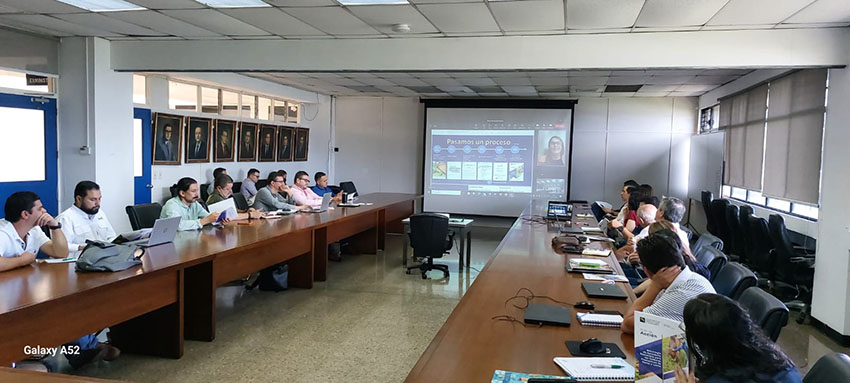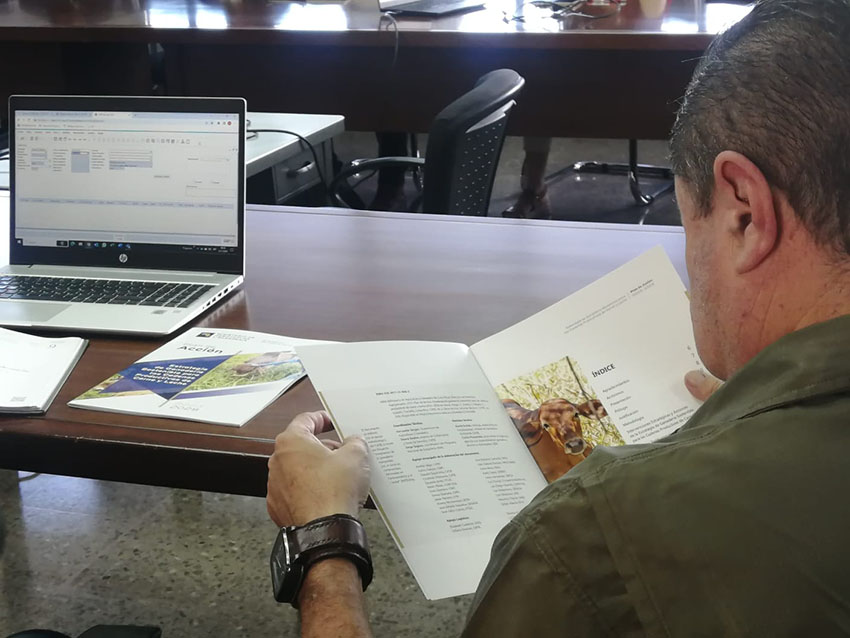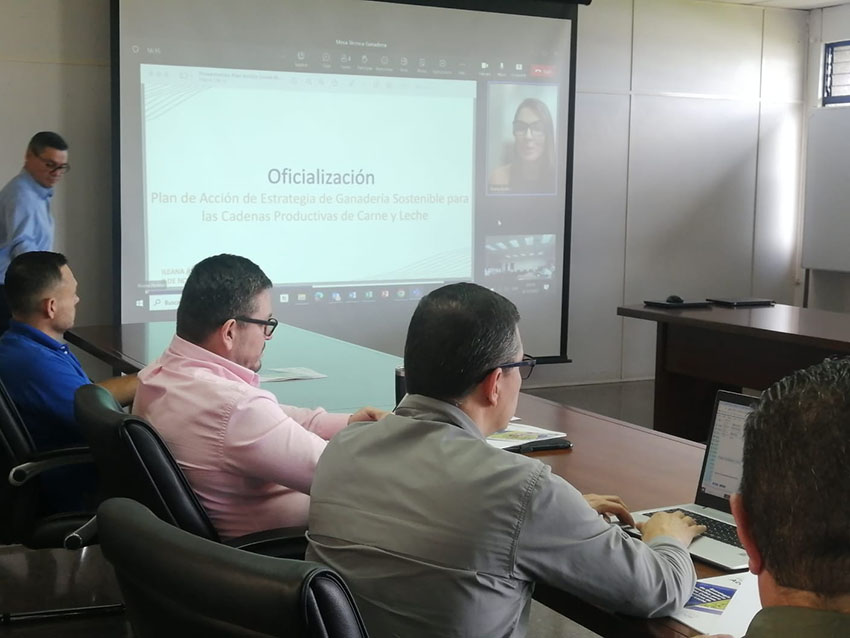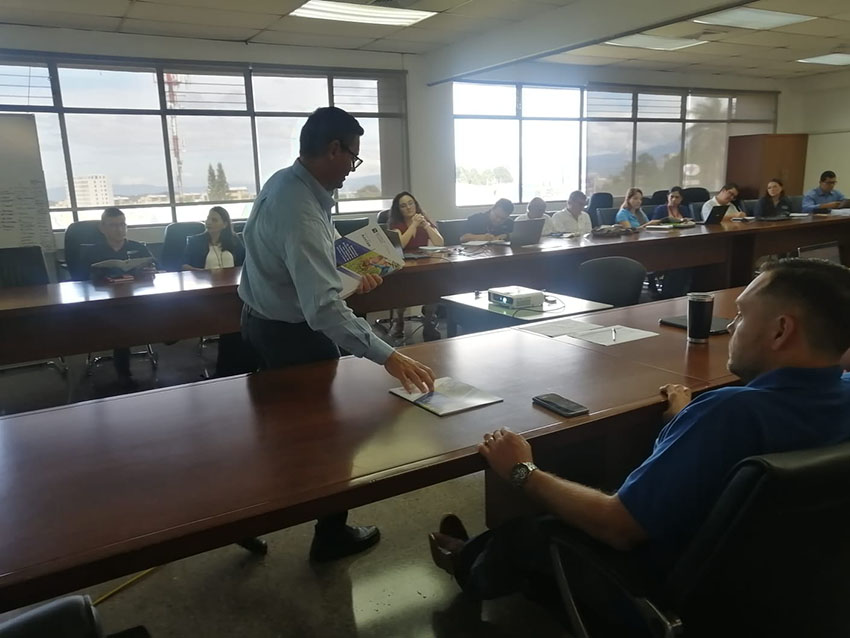Costa Rica launches action plan to make meat and milk production more competitive, profitable and environmentally responsible

- The plan includes actions to be developed until 2028 and is part of the Strategy and Policies for the Sustainable Development of Livestock and its Industries.
November 8, 2023. As part of the country's efforts to implement the Strategy and Policies for the Sustainable Development of Livestock and its Industries, the Action Plan of the Sustainable Livestock Strategy Strategy for the Meat and Dairy Production Chains, for the period 2023-2028 was officially presented on November 8, as part of the coordinated work of the entire national livestock sector and competent entities of the public and private sectors and the comprehensive and multisectoral commitment to transform and improve the sustainability of the Costa Rican livestock sector.

The creation of the plan was an inclusive and collaborative process, developed within the framework of the Livestock Technical Roundtable, which plays an essential role in its implementation, functioning as a forum for management coordination and interinstitutional articulation, facilitating integration and joint work among various entities through regional commissions and permanent work, ensuring cohesive and efficient operation. In the construction of the plan, CATIE (Tropical Agricultural Research and Higher Education Center) participated with methodological and strategic support for the participatory consultation process, which was essential for identifying needs and opportunities for transforming the sector.
The plan directly addresses emerging challenges such as climate change and the need for more resilient and efficient production practices. By establishing clear goals and implementation mechanisms, the plan aligns with national climate ambitions, seeking to improve the sector's efficiency, profitability and competitiveness, while reducing its environmental impact and promoting adaptation to climate change.
“"Today, with great pride and satisfaction, we can affirm that Costa Rican livestock farming is totally different from other models worldwide, since we have managed to develop sustainable production systems in a national environment that allows business stability, with legal security and clear environmental and production standards, which has fostered an environment that favors innovation. We are confident that this action plan will be of great value in meeting the great challenges and opportunities facing the sector and improving the efficiency, resilience and profitability of livestock producers," said Victor Julio Carvajal, Minister of Agriculture and Livestock.
For his part, Muhammad Ibrahim, director general of CATIE, said the plan reflects the commitment and determination of Costa Rica's livestock sector to achieve equitable, sustainable and resilient development. "This plan is the result of the close collaboration that exists between various livestock stakeholders, all united under the common goal of promoting livestock farming that contributes to the well-being of producer families and the economic, environmental and social sustainability that the country promotes in all its actions. This is a step forward in building a sustainable future for livestock farming in Costa Rica," said Ibrahim.
The plan will contribute significantly to the country's meat and milk production, as it promotes more efficient and strategic coordination among the institutions involved in the livestock sector; reduces duplication and optimizes the use of institutional resources; offers more cohesive and complete support along the entire production chain, from primary production to processing and marketing.
It also recognizes the importance of cross-sectoral collaboration and the need to work with institutions beyond the agricultural sector, which allows the multifaceted challenges faced by the industry to be addressed more effectively. In addition, by focusing on the entire value chain, the plan seeks to improve efficiency and sustainability at every stage, from genetic improvement and livestock feeding to processing and marketing of final products.
The plan acts as a catalyst to direct international cooperation resources to the most critical areas, ensuring that foreign investment and technical assistance align with national priorities and strengthen local capacities. This includes the adoption of sustainable livestock practices within the framework of the Livestock NAMA that the country continues to strengthen to increase productivity and product quality, as well as contribute to the mitigation and resilience of production systems to extreme weather events.
Livestock farming in Costa Rica is an activity of great relevance for the development of rural areas, generating and distributing economic welfare and employment throughout all links of the country's meat and milk agro-chains. According to data from the latest National Survey, prepared by the National Institute of Statistics and Census (INEC), in 2022, the country registered 1 509 011 head of cattle, of which, 931 221 were dedicated to meat production, 238 368 to milk production, 337 576 were dual purpose and 1 846 thousand were working animals, this represents an increase of almost 22% compared to 2014 data.


More information:
Claudia Sepúlveda
Leader
Livestock and Environment Management Unit (GAMMA)
CATIE
csepul@catie.ac.cr
Written by:
Karla Salazar Leiva
Communications Officer
Communications and Marketing Office
CATIE
karla.salazar@catie.ac.cr



